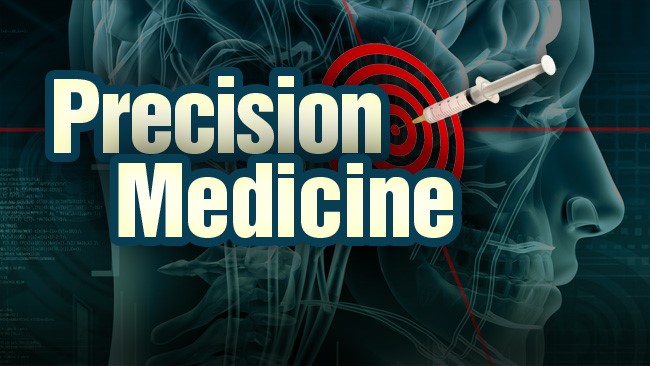Precision medicine, often referred to as personalized medicine, represents a paradigm shift in healthcare. By leveraging advances in genomics, data analytics, and biotechnology, precision medicine aims to tailor medical treatment to the individual characteristics of each patient. This approach stands in stark contrast to the traditional one-size-fits-all model of healthcare, promising improved outcomes, reduced side effects, and more efficient use of resources. As we look to the future, the potential of precision medicine appears boundless, with transformative implications for diagnosis, treatment, and prevention.
Genomics: The Blueprint of Life
At the heart of precision medicine lies the field of genomics. The completion of the Human Genome Project in 2003 marked a watershed moment, providing a comprehensive map of the human genome. This monumental achievement has set the stage for a deeper understanding of the genetic underpinnings of disease. Today, next-generation sequencing (NGS) technologies allow for rapid and cost-effective sequencing of individual genomes, enabling healthcare providers to identify genetic mutations and variations that may predispose individuals to certain conditions.

For instance, in oncology, genomic profiling of tumors has become a standard practice in many advanced healthcare settings. By identifying specific genetic mutations within a tumor, oncologists can select targeted therapies that are more likely to be effective. This approach not only enhances treatment efficacy but also minimizes adverse effects by sparing patients from unnecessary treatments.
Data Analytics: Harnessing the Power of Big Data
The integration of big data analytics into precision medicine is another critical factor driving its evolution. The sheer volume of data generated from genomic sequencing, electronic health records (EHRs), wearable devices, and other sources presents both a challenge and an opportunity. Advanced data analytics, including machine learning and artificial intelligence (AI), are essential tools for sifting through this data to uncover meaningful patterns and insights.
AI algorithms can analyze vast datasets to identify correlations between genetic markers and disease outcomes, predict patient responses to treatments, and even suggest personalized treatment plans. For example, AI-driven platforms can analyze EHRs to identify patients at high risk for certain conditions, enabling early intervention and preventive measures. The application of AI in precision medicine not only enhances diagnostic accuracy but also optimizes resource allocation, ultimately improving patient care.
Biotechnology: Innovations in Treatment and Prevention
Biotechnology is another cornerstone of precision medicine, driving innovations in both treatment and prevention. Advances in gene editing technologies, such as CRISPR-Cas9, hold the promise of correcting genetic defects at their source. This revolutionary approach has the potential to cure genetic disorders that were previously considered untreatable.
Moreover, biopharmaceutical companies are developing targeted therapies that interact with specific molecular pathways involved in disease progression. These therapies, often referred to as biologics, include monoclonal antibodies, small molecule inhibitors, and RNA-based treatments. By targeting the root causes of disease at the molecular level, these treatments offer a higher degree of precision and efficacy compared to traditional drugs.

Preventive measures are also being revolutionized by precision medicine. Genetic screening can identify individuals at high risk for certain conditions, allowing for proactive measures such as lifestyle modifications, regular monitoring, and prophylactic treatments. For example, individuals with a family history of breast cancer can undergo genetic testing to determine their risk and take preventive actions, such as increased surveillance or prophylactic surgery.
Ethical and Regulatory Considerations
While the future of precision medicine is undoubtedly promising, it also raises important ethical and regulatory considerations. The use of genetic information must be handled with the utmost care to protect patient privacy and prevent discrimination. Robust regulatory frameworks are essential to ensure that genetic data is used responsibly and that patients provide informed consent for its use.
Moreover, the equitable access to precision medicine is a critical issue. The high costs associated with genomic sequencing and targeted therapies may limit their availability to certain populations, exacerbating existing healthcare disparities. Policymakers and healthcare providers must work together to develop strategies that ensure all patients can benefit from the advancements in precision medicine, regardless of their socioeconomic status.
Conclusion
The future of precision medicine holds immense potential to transform healthcare by providing more personalized, effective, and efficient treatments. Advances in genomics, data analytics, and biotechnology are driving this evolution, enabling a deeper understanding of disease mechanisms and the development of targeted therapies. However, the successful implementation of precision medicine requires careful consideration of ethical and regulatory issues, as well as efforts to ensure equitable access for all patients.
As we move forward, continued investment in research, collaboration across disciplines, and the development of robust regulatory frameworks will be essential to realizing the full potential of precision medicine. By embracing this new era in healthcare, we can look forward to a future where medical treatment is not only more precise but also more compassionate and patient-centered.












